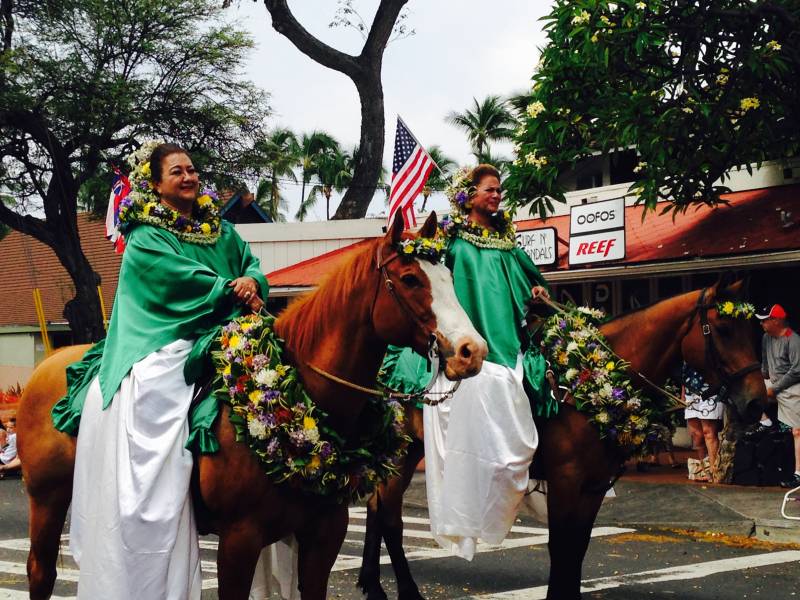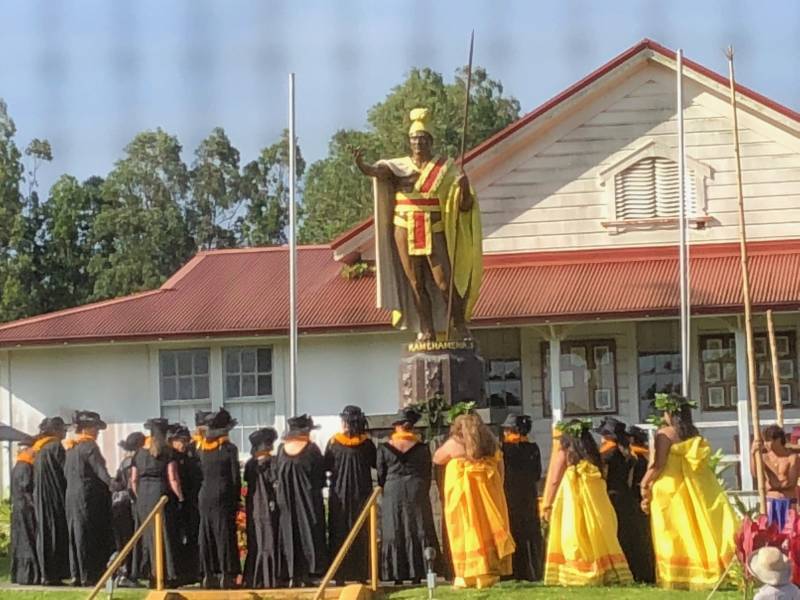Hawaii State Holidays – State and National Holidays Affect Real Estate Closing Dates
Buyer or seller of a property in Hawaiʻi — you are finally in escrow and trying to figure out the timeline for contingencies and closing. Some paragraphs in the Hawaii real estate purchase contract will specify calendar days. Some will specify business days. In the paragraph on Scheduled Closing Date, there is language that specifies “If the Scheduled Closing Date falls on a day the Bureau of Conveyances is closed, closing will be on the next day when
conveyance documents can be recorded.”
Hawaiʻi is unique in having a statewide system of recording for deeds and other documents. Other than simply asking your real estate broker or escrow officer, how would you know which days the Bureau of Conveyances is closed? Basically, the rule would be they are closed on weekends and holidays. That includes both federal holidays (the ones where your bank and post office would also be closed), and Hawaiʻi state holidays.
The first of those three additional holidays is upon us, so here are the dates you need to remember for 2023.

Pʻau riders represent each of the Hawaiʻian islands in a holiday parade — this photo from a Kamehameha Day celebration in Kailua Kona
Three Hawaiʻi State Holidays When Real Estate Transactions Cannot Close
The three Hawaiʻi-specific holidays are:
- Prince Jonah Kuhio Kalanianaole Day — March 26th or the closest weekday if it falls on a weekend e.g. March 27, 2023
- King Kamehameha I Day — June 11th or the closest weekday if it falls on a weekend e.g. June 12, 2023
- Statehood Day — third Friday in August e.g. August 18, 2023
Note the irony of this line up. Two of the three holidays celebrate royalty, two of the many significant leaders who shaped modern Hawaiʻi. The third is the eventual outcome of the events that led to the end of the constitutional monarchy that governed Hawaiʻi until 1893. The first two holidays are celebrated with ceremony, pageantry, and hoʻolaulea (celebrations). The third goes by remarkably unnoticed unless you are a state employee with a day off, or wanting to close escrow in August.
Prince Jonah Kuhio Kalanianaole Day – March 26

Statue of Prince Kuhio in Waikiki, Oʻahu is often adorned with lei. The holiday is on March 26th of each year.
Usually you will hear this holiday referred to simply as Prince Kuhio Day. (Properly there should be kahako or long “-” over the u and i, but somehow our blog platform does not publish those diacriticals.) Even in his time, as a member of Congress he went by the simpler “Kuhio” rather than “Kalanianaole” which Americans found difficult to remember and pronounce. But if you live here it is good to learn the pronunciation, as there are a number of streets honoring that name, including the location of Hawaii Lifeʻs Hilo Office. Prince Jonah Kūhīoʻs surname “Kalanianaole” came from his grandfather, a high chief of Hilo.
There is another blog post about Prince Kuhio on Hawaiʻi Life that does an excellent job of summarizing his remarkable accomplishments, including his sponsorship of the Hawaiian Homes Commission established as an Act of Congress to provide homesteads for native Hawaiians. If you come across a rare real estate resale listing that mentions “DHHL” or “Hawaiian Homes,” it will specify that you must qualify to purchase that property.
For those with an appetite to learn more, the recent Sunday series published in Civil Beat is a detailed look into the remarkable life of Prince Jonah Kuhio Kalanianaole. The Association of Hawaiian Civic Clubs, along with the Council for Native Hawaiian Advancement, is hosting a floral parade in his honor on March 25th in Kapolei, Oʻahu.
King Kamehameha I Day – June 11

Kamehameha Day ceremony at the statue of Kamehameha I in Kapaʻau, North Kohala prior to the draping of lei and parade on June 11th.
Most readers will recognize that Kamehameha I was the chief who united the Hawaiian islands in 1795, just before the arrival of the first Westerners. I have written before about the annual celebration in Kohala, his birthplace. For the story of his legacy as a warrior, I like the National Park Service site. The Kingdom of Hawaiʻi created by Kamehameha I and the rulers who followed was internationally recognized as a sovereign state with diplomatic ties to European nations, England and the United States. There were five rulers who took the name Kamehameha. Following the death of Kamehameha V, William C. Lunalilo became the first elected monarch, followed by David Kalakaua, the “Merrie Monarch” who supported a restoration of the arts, practices and knowledge of Hawaiian cultural tradition. King Kalakauaʻs sister Liliuʻokalani ruled as Queen until overthrown by American businessmen supported by U.S. Marines in 1893.
Hawaiʻi Statehood Day – Third Friday in August
As I mentioned at the start of this post, you wonʻt really find community celebrations of Statehood Day in Hawaiʻi. But note two other dates on your calendar. These are not holidays for the Bureau of Conveyances, but you will find the commemorations meaningful if you are interested in the history of Hawaiʻi.
- The first Hawaiian National Holiday is Lā Hoʻihoʻi Ea, celebrated on July 31st, as explained in this blog post.
- The second date you will want to remember is Hawaiian Independence Day, Lā Kū’oko’a, celebrated on November 28th.
But to return to the original topic, the Bureau of Conveyances will be open on these last two holidays. It is only the U.S. federal and Hawaiʻi state holidays that will potentially affect your closing (recording) date.




Leave your opinion here. Please be nice. Your Email address will be kept private, this form is secure and we never spam you.